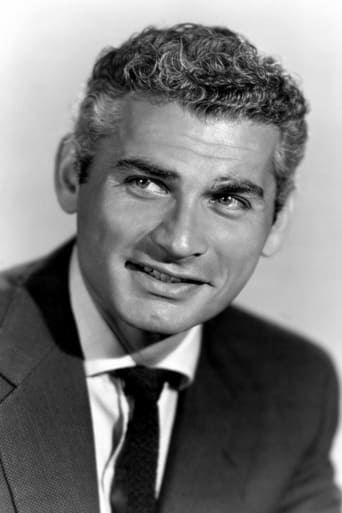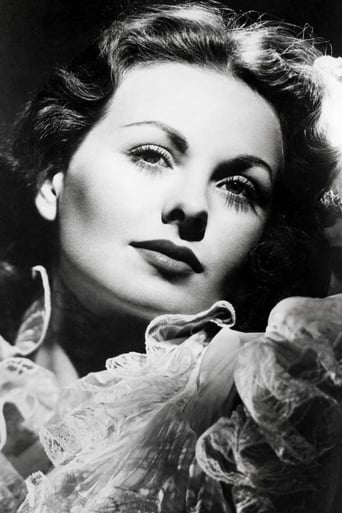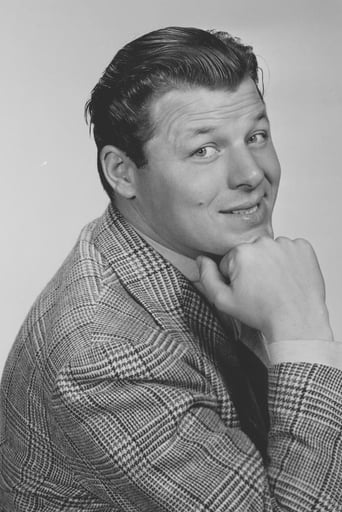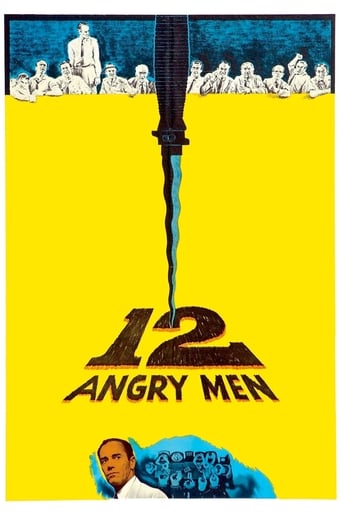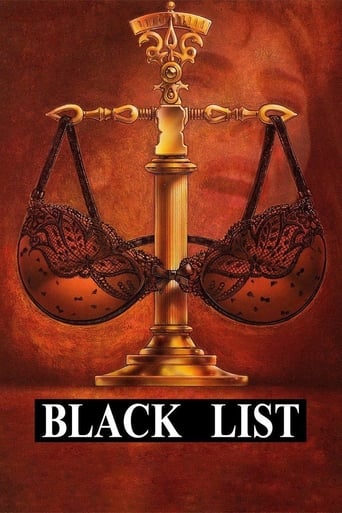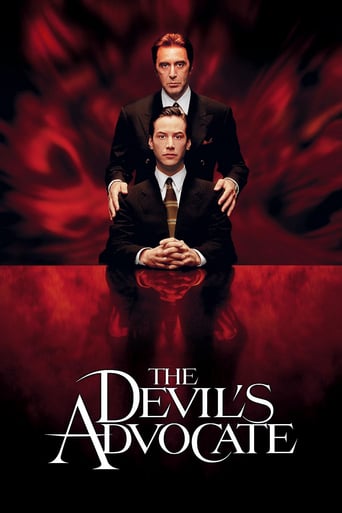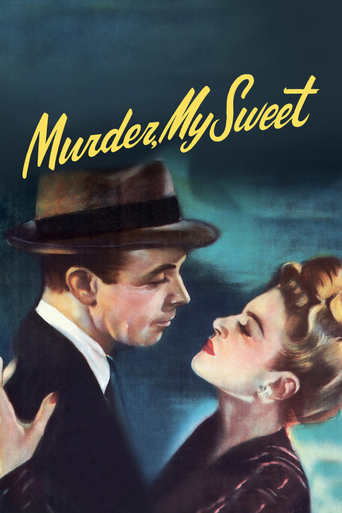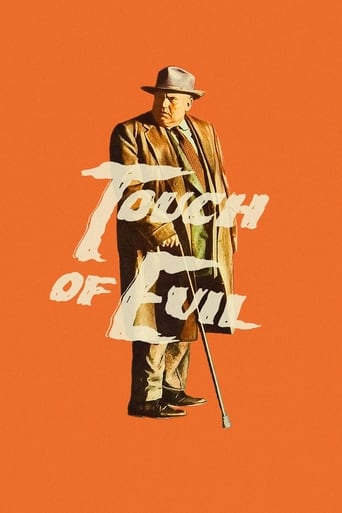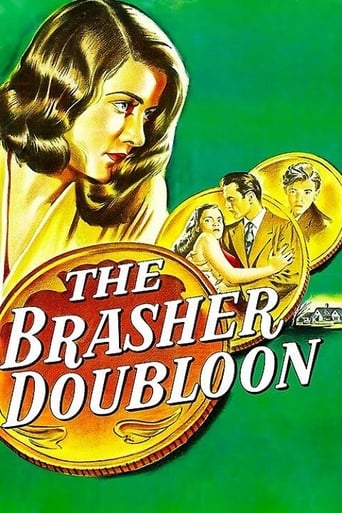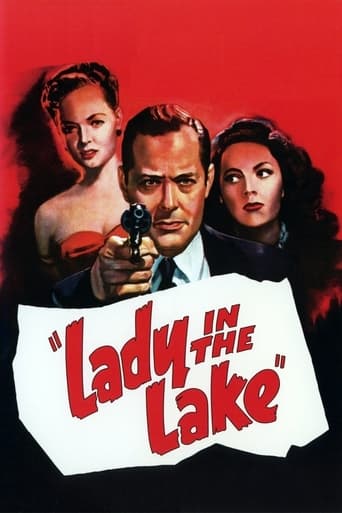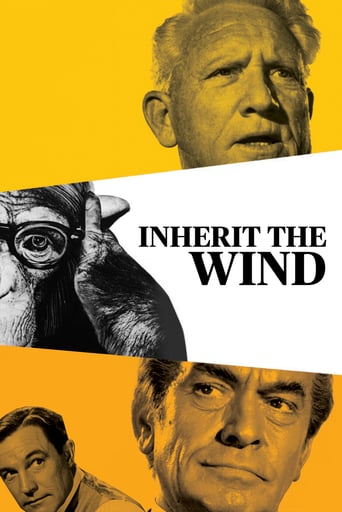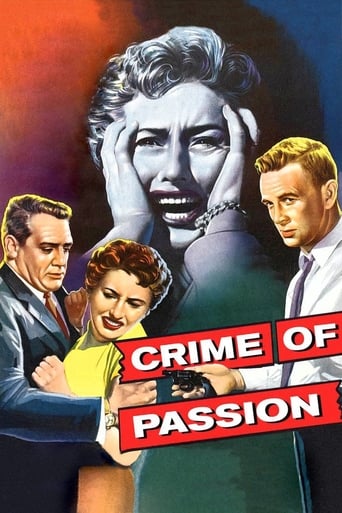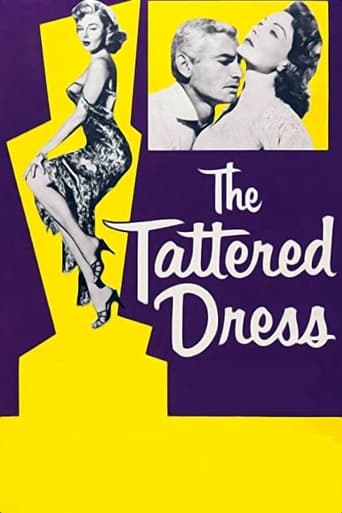

The Tattered Dress (1957)
After a wild night, wealthy Michael Reston's adulterous wife Charleen comes home with her ripe young body barely concealed by a dress in rags; murder results. Top defense lawyer J.G. Blane, whose own marriage exists in name only, arrives in Desert View, Nevada to find the townsfolk and politically powerful Sheriff Hoak distinctly hostile to the Restons. In due course, Blane discovers he's been "taken for a ride," and that quiet desert communities can be deadly...
Watch Trailer
Cast


Similar titles
Reviews
Surprisingly incoherent and boring
Good , But It Is Overrated By Some
As Good As It Gets
One of the most extraordinary films you will see this year. Take that as you want.
After a member of the town upper crust Michael Reston and his wife get mixed up in a surly murder they reach out to top shelf lawyer James Gordon Blaine (Jeff Chandler) for defense. Blaine blows into Desert Nevada with his major rep that rankles the local common folk who see money buying Reston out of the rap, especially the local sheriff, Nick Hoak (Jack Carson), a friend of the murdered one time football hero gone town drunk. When Blaine gets Reston off the vitriol flows and the lawyer is accused of bribing a juror ( Gail Russell) on trumped up charges orchestrated by the sheriff and when that comes undone he resorts to more brazen tactic. The Tattered Dress is a sensationalist piece whose selling point (coming attractions, lobby cards) centers around the sluttish opening scene presence of hyper tease Charleen Reston luring the boozy dumb jock to his demise. Things get staid after the fireworks though Ms. Reston likes what she sees in Blaine when his estranged wife (Jeanne Crain) shows up for support. The script remains perfunctory most of the way and Jack Arnold's direction is lax though Bernie Guffey's lensing lends visual support especially in the early moments where the Restons' throw the has been halfback for a final loss. What does give the film authority is the the unsympathetic surly Reston's cynicism and the fact that he walks on what is no more than an execution. Instead Arnold wastes time on Blaine's tenuous marriage with a wasted Jeanne Crain and a heavy handed finale. Chandler offers a decent lead and the supporting cast of Jack Carson, Gail Russell and Phil Reed with Elaine Stewart turning the heat up make their presence known but it is Edward Andrews in one brief scene as a lawyer about to defend Blaine who has the best moment, once again coldly cynical. In the hands of a more daring director and with tighter script and dialogue Dress might have made for a nice dark noir but given its cinemascope first run backing it wastes it's time with lookers Chandler and Crain in clinches when a similar scene between the weighty shirtless Carson and the dissipated Russell resonates with far more power. Then again Hollywood film remains a business before artistic consideration in most cases and it does so to the detriment of this picture aesthetic possibilities in favor of box office. Sounds logical.
'The Tattered Dress' is the second of four programmers released by Universal in 1957 directed by Jack Arnold, who had started the year extremely auspiciously with 'The Incredible Shrinking Man'. 'The Tattered Dress' was the first of two films he made set in the deep south: the latter being 'Man in the Shadow', in which Jeff Chandler played the honest sheriff of a fictitious cow town called Spurline who crosses swords with a ruthless local ranch owner played by Orson Welles. In 'The Tattered Dress' it's the sheriff (played by Jack Carson) who's the heavy; and Chandler the lawyer from New York come to defend a wealthy local spiv for the murder of a popular local sports hero to whom his trashy wife had lately taken a shine. After a glorious opening sequence resembling a series of dime novel covers of the period, Chandler arrives in Desert View, Nevada; and the moment he steps off the train the unfriendly looks he gets tell us we're in 'Mississippi Burning' territory. Like most Hollywood films since time immemorial it takes a remarkably cynical view of lawyers and the law ("I could spend hours telling you of innocent men imprisoned and executed because of clumsy and uninspired defences"), but treats its often lurid subject matter in a rather lacklustre and talky fashion. Jeffrey Chandler isn't the most convincing of casting as a cynical and ruthless lawyer whose motto is "If you're guilty get James Gordon Blane" (it would have been perfect for Carson, actually); and most of the excellent supporting cast aren't really at their best, with the notable exception of Edward Andrews in a very small part and Gail Russell (whose vulnerable appearance is enhanced by the regrettable fact that she was in reality drinking herself to death at the time) as a pawn in a dastardly plot by crooked sheriff Jack Carson to cook Chandler's goose.Two nice uses by Arnold of the Cinemascope screen were the way Chandler's until now estranged wife Jeanne Crain signals that their conjugal relations are about to resume by pulling shut the curtains in his hotel suite; and the slight but perceptible little sigh of relief visible on the part of the court stenographer (played by Robert Haines) when Chandler's passionate summary to the jury finally ends.
The Tattered Dress is a very under rated film that I wish would be broadcast more often. I saw it many times during the sixties and seventies and haven't seen it for years. But the performances do stand out.The one who stands out the most is Jack Carson. This is no doubt his best screen dramatic performance. Carson usually was cast as amiable blow hard types who usually meant well, but could be very dense. In The Tattered Dress as the mean sadistic sheriff he really should have been nominated for Best Supporting Actor in this one.Jeff Chandler plays a high price defense attorney who's come to Carson's town to defend a married couple accused of a murder that has generated national headlines. Chandler is usually well paid for his services and this is no exception. While there Chandler makes the acquaintance of Carson. Carson's a local celebrity himself, his former gridiron exploits locally helped him first get elected sheriff. However Chandler's a real national celebrity and Carson fawns all over him.What happens though is that Carson gives Chandler a confidence that when the trial comes, Chandler uses to impeach Carson's testimony and make him a figure of ridicule on the stand. Because of that his clients get acquitted.Carson exacts his revenge by framing Chandler on a jury tampering charge and uses every avenue to close any loopholes Chandler might find as his own defense attorney. The Tattered Dress is one of Jeff Chandler's best films, but as good as he is, Jack Carson gives us his career performance. He's an incredible study of pure evil in power. A person totally unable to deal with others professionally. Chandler was an attorney advocating for his clients, admittedly not a pair of the noblest creatures on earth, but in the final analysis was just doing his job. Carson can't separate that out. I've known some and worked for some people like that in real life. Bad when they get into positions of authority.Elaine Stewart and Philip Reed are Chandler's wealthy clients who take a powder on him when he gets in a jackpot. Jeanne Crain is Chandler's estranged wife who still stands by him and Gail Russell in one of her last film roles is the woman who accuses Chandler of jury tampering. They all fill their roles nicely, but a special mention should go to George Tobias, a comedian who Chandler got off on a murder charge himself, but at the cost of his career. He serves as a gopher/confidante to Chandler and has a tragic end.I truly wish The Tattered Dress was out on VHS or DVD. It's a terrific story that is well acted and written. Absolutely a must see for fans of Jeff Chandler and Jack Carson.
There seems to me as a writer and critic to be a bad tendency among U.S. reviewers to confuse their emotional and unaccountable reactions with information. For instance, I regard Jeff Chandler as a very good classical actor; I assert this because he has the vocal power, sufficient emotional voltage and the high intelligence to play characters in the distant past, future, positions of nobility and professions. But I also claim to be able to tell among his strongest portrayals, and those which were less successful. In "A Tattered Dress", for instance, the dress referring to the robes which cloak the naked female statue of justice, I believe Chandler has one of his most fascinating parts in this film by anyone's standards. And one of his best successes.He plays a lawyer who was refused employment as a poor student once he had been admitted to the bar in the Depression era; to overcome this injustice, he began taking clients who were criminals, who could pay him. In the years since then, he has become a famous and deeply- hated lawyer, because of those criminals whom he represents. The fascinating twist to this Jack Arnold directed noir is that he wins his original case. A husband had been accused of having killed his wife's lover, after she has come with "a tattered dress'. Then, thanks to collusion between the town's average-guy closet-dictator sheriff, and those supporting him, the lawyer finds himself accused of having bribed a juror during the case. His estranged wife returns to stand by him; he elects to be defended by the best lawyer he knows, himself. and this proves to alienate the townsfolk even further. He shakes the juror's testimony, but he must resort to a magnificent last defense, equating the tattered dress with justice itself that is thwarted, to plead his case as a human being who has been wronged more than he has wronged anyone. he is acquitted, which leads to a strongly-written climax and ending. This is a well-made and well-directed thriller; besides veteran Arnold's direction, this B/W drama features original music by Frank Skinner and Henry Mancini, fine cinematography by Carl E. Guthrie, outstanding art direction by Alexander Golitzen and Bill Newberry, set decorations by John P. Austin and Russell A Gausman. The very good costumes were the creation of J.A. Morely, Jr., with makeup being the work of Bud Westmore. Among the cast, Jeff Chandler's work as the lawyer accused is award level and memorable, varied in tone and nuanced. Others who brought to life George Zuckerman's finely-crafted script, drawn from a novel included Jack Carson as the sheriff, Jeanne Crain as the lawyer's wife, Gail Russell as the juror in question, Philip Reed as the husband, plus talented Edward Andrews Elaine Edwards, George Tobias, Edward Platt, Alexander Lockwood, Paul Birch, Edwin Jerome and William Schallert. This is a film that must be judged I assert by what it is, not what any observer wished it might have been. It is a very powerful indictment of U.s. societal justice as long ago as the 1930s; and of the citizens of a representative town who allow their prejudices to interfere with their judgment. Similar movies had been made, in the same era as this, about other democratically-elected governments and their statist countries, such as England and France. But the content of this scorching indictment of postmodernist truth-twisters and their all-too-willing victims is a very United States story, and one coming from the H.U.A.C era as well. A very strong film.


